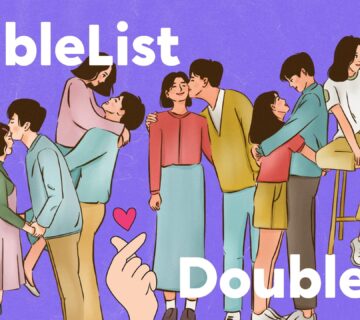Stages of Rebound Relationships, A breakup often creates an open space that tends to draw people into a new relationship. Rebound relationships usually start out of attempts to cope with pain and loneliness left by a former relationship; they serve as an excuse or emotional support for most people. However, it is not a rule of thumb that rebound relationships do not work; it simply serves as a basis that, if both parties can trace back the stages, then there is hope of recovery.
In this article, we will explore the common stages of a rebound relationship and share insights on how to navigate each stage, whether you are in one or considering getting involved with someone who has. Have recently ended a significant relationship.
The Spark Stage: New Beginnings and Excitement
Description:
For one, a rebound relationship tends to be exciting at the initial stages. There’s the excitement, the sense of novelty, and an inclination that this new relationship may well be able to fill that missing emotional gap left behind by the previous one. Most probably, it is characterized by a desire to either change or forget a previous relationship.
Features:
It holds high levels of affection and enthusiasm.
Constantly keep things fresh and exciting as if working to remain with something.
Both may feel an urgent need to rush into the relationship.
Emotional Condition:
A springing back person may feel relieved, excited, and free, but beneath their ecstasy lies unresolved emotions in their past relationship.
This is the phase to take slowly. You will now understand your partner well. Do not look for it if you know you’re rebounding.
Honeymoon Stage: There is a lot of chemistry and attraction
Explanation:
Honeymoon stage. Everything looks beautiful. This is about taking advantage of each other so much that people are busy with each other without spending time discussing issues of their past.
It may also tend to feel like a real relationship when in fact, it still happens to be an extended period of the honeymoon as many people will agree;
A rebound person can have all that happiness, the satisfaction, and even real love. But often, his or her mind will continue to go back to the former relationship, and all emotional luggage has not yet faded.
Tips for managing
: Soak up those happy moments but be open to past experiences and future expectations as well. It should clarify if this is only going to be a passing phase or something more.
Reality Check: Coming face to face with unfinished business
Description:
Eventually, reality dawns. The euphoria wears off, and the person relapsing starts to feel that the new relationship will not fill their previous pain.
Left-over feelings, residual doubts, and comparisons creep up with previous partners.
Characteristics
The rebounding individual will tend to compare their new lover with the ex.
There will be emotional vulnerability characterized by some uncomfortable conversations.
Relationships will become cloudy or full of doubt Stages of Rebound Relationships.
Emotional condition:
This stage sees both parties becoming frustrated as well as overwhelmed by the other party’s flaws and the unsolved issues they have with their partner. The rebounding subject may end up feeling distraught or concerned that possibly the relationship is just but a flash in the pan.
The tips on how to do it
It requires introspection. The rebounding person has to find out whether he or she is comparing or idealizing the ex and express any unwillingness on both ends. Recognize the past but do not thrust it into the new relationship.
Doubt Stage: Questioning relevance and commitment
Description:
At this point, the center of the relationship is placed under a test. A rebound individual may even doubt if the person they have at hand now can provide what their rebound needed and looked for. With increasing and increasing comparison going on, an earlier passion relationship starts to fizzle out.
Characteristics:
The individual may develop a sense of emotional withdrawal.
More questioning of whether the relationship would work in the long term
Unexpected expectations are a breeding ground for possible friction and argument
Emotional state:
It is during this stage that one is likely to feel uncertainty and despair. A rebound person may also resent his partner for not meeting unconscious expectations from his previous relationship.
Tips for navigating:
Take a step back and assess what you really want in a partner. Are you with this person because they really do meet your needs, or are you trying to avoid past pain? Open communication and possibly personal counseling may help clarify feelings and intentions.
Reflective Stage: Self-reflection of the reason for the relationship
Description:
Stages of Rebound Relationships, This is a very reflective stage. The person recovering starts to look into the contribution of the relationship towards his or her growth and healing process. Questions pop into their minds about whether they are really happy or require more time to heal on their own.
Features:
Sincere self-evaluation and reflection on the reason behind the relationship.
Guilt feelings if they find that they have unconsciously hurt their new partner.
More emphasis on self-growth and emotional understanding
Emotional state:
This is when emotions become too messy. A person may feel guilty, frustrated, or at peace with the present partner or even an ex.
Management
Reflecting on relationships is challenging, but it is a step towards personal growth. If you are a recovering individual, be honest with yourself on whether you are in recovery. For both of you, it is fine to redefine the relationship if it does not serve the best interest of either of the people.

Deciding Stage: Decide whether to move on or move on
Explanation:
The decision stage is critical. The rebounding person needs to determine if they are serious about this new partner or if the relationship was merely a way out of past pain. This stage may result in renewed commitment or healthy, compassionate separation.
Characteristics:
Have an open, honest discussion about commitment and future plans.
Potential to commit with greater understanding or separate lovingly.
Sense of closure, regardless of the outcome
Emotional state:
Relief, clarity, and closure accompany this stage. When a choice to move forward is made, commitment is strong. When not, both parties are free to close the chapter and get ready to take on healthier options Stages of Rebound Relationships.
How to deal with:
If you are to decide staying in the relationship, then let’s grow and communicate with each other. In case you will break up, then appreciate the time you had with this person and begin your journey towards healing. This, too, is an appropriate choice but important to your emotional health as well.
Recovery and Relapse: Moving On
Explanation
Whether you stay in the relationship or end it, moving on is a healing and personal growth phase. If the relationship continues, both will have learned from their pasts, creating a solid basis. If it pans out, both can take away some insights to apply to future relationships.
Features:
Enhanced self-awareness and emotional resilience
A good sense of purpose and clear understanding of what one needs from a relationship
Better communication skills and boundaries
Emotional state:
This stage brings power, rebuilt self-esteem, and more profound insight into personal aspirations. Moving forward marks the shift from emotional dependency to healthy interdependency.
Read More: Sweet and Cute Paragraphs for Your Boyfriend
Guidelines on how to go about it
Self-nurturing or with a partner. Rebuild your self-esteem as well as emotional awareness, so the next relationship will not be one of filling up a void but of growing together.
Final thoughts about rebound relationships
Stages of Rebound Relationships, Rebound relationships are a huge part of healing. While not all rebounds are meant to fail, knowing the stages of them helps people realize why they are really doing it and what they’re looking for in their emotions. Healthy relationships, which are nourished by self-reflection, open communication, and honesty, keep them healthy. These healthy relationships can be stepping stones in healing, or they may be the relationship that gives meaning; there is a lot one learns about love, resilience, and growing as a person.













